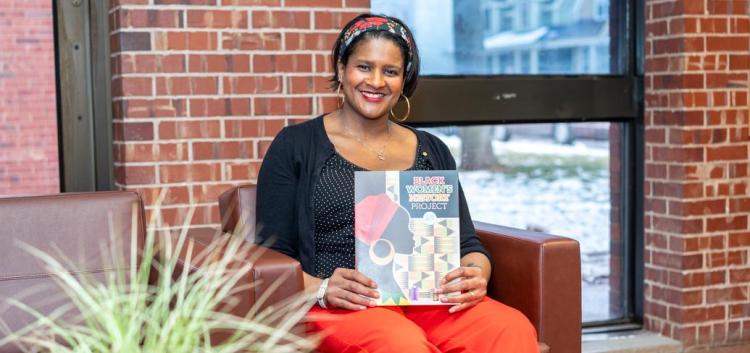Debbie Langston immigrated to Prince Edward Island in 2004 with her young family. In 2018, while working in a local school and doing research for Black History Month, she came across the story of The Bog.

Debbie Langston
Langston was excited to learn more about the Black community that has existed in PEI since before Confederation.
"It gave me a sense of belonging."
But as she began discussing her findings with others, she realized that the history of Black Islanders and the existence of The Bog were not well known.
"History is usually a very one-sided story and is often told by white historians. This results in a gap in knowledge regarding the experiences, thoughts, and voices of enslaved people. I wanted to change that."
So, Langston created The Black Women's History Project, in collaboration with the Black Cultural Society of PEI; descendants of Black Islanders; the Advisory Council on the Status of Women; the Interministerial Women's Secretariat; and members of curriculum team with the Department of Education and Early Years.
It's a resource that contains lesson plans, videos, a timeline of Black Islander history, and materials to support teachers, focusing on Black women's history in PEI.
Langston says resources like this are vital in schools.
"It's really about representation. I think that when students see themselves in the curriculum, they are more invested in learning."
When the PEI Museum and Heritage Foundation heard about the project, they wanted to help by creating complimentary resources. They gathered a trunk full of artifacts associated with the lives of Black women that lived in The Bog in the late Victorian period.
The trunk is available to students so they can touch, examine, and explore the working artifacts.
The foundation also mapped out a guided walking tour that discusses the challenges and triumphs of the Black Islanders who made up The Bog community.
Jason MacNeil, the foundation's education and programming officer, was thrilled to be part of the project.
"There are so many untold and sadly, forgotten histories and the more we can do to ensure that they are told, the better we are serving our students. On PEI, unless you are Mi'kmaq, your family has an immigration story, and everyone's story has shaped our history."
Langston, who is now works for the Department of Education and Early Years, says the entire process has been very rewarding.
"It's been so meaningful to the community members involved, who have always been interested in their own history but were not able to find it. I feel very honored to help them bring the past to light."
"I hope this project helps the next generation of PEI students understand the history and experiences of all the people who are fortunate to call PEI home."













